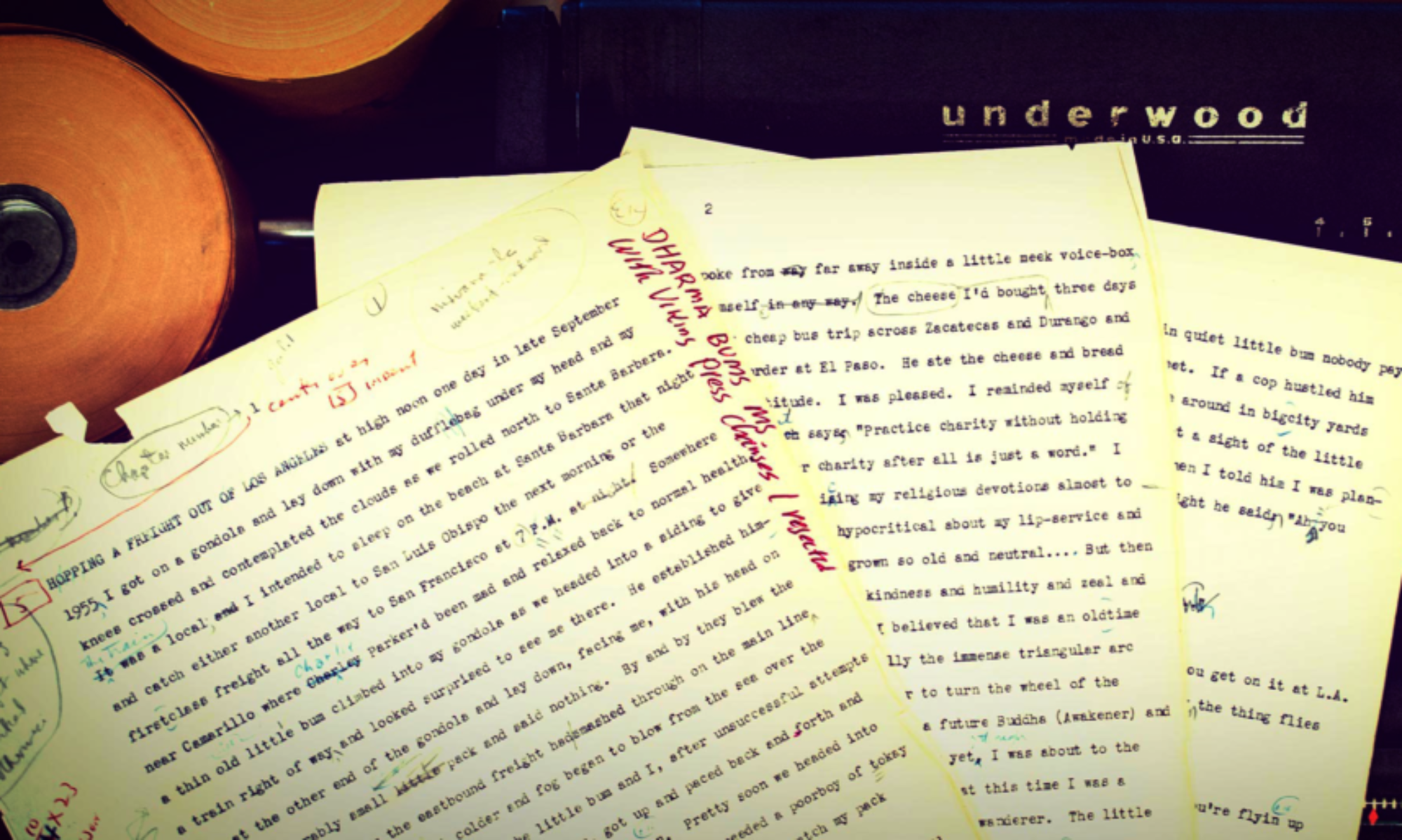Emory’s English department is in the midst of a once-in-a-generation change, with an extraordinary influx of new scholars, writers, and teachers across all units of the department. With these hires, we are proud to be adding extraordinary writers to our already top-ranked Creative Writing program; adding to our already impressive roster of faculty in African American literary study; developing new pathways in digital humanities and quantitative approaches to literary study; and deepening our offerings in rhetoric to emphasize issues of environmentalism, feminism, and community-engaged writing.
In January, the Creative Writing program brought the world-acclaimed novelist Tayari Jones (a proud Atlanta native) to campus, fresh off the success of her critically hailed (and best-selling) novel An American Marriage. Praised by President Barack Obama as “a moving portrayal of the effects of a wrongful conviction on a young African American couple,” the novel cements Prof. Jones’ reputation as one of the leading voices of contemporary American fiction. Her novels both reflect and create a distinctive world of African Americans experiencing struggle, love, triumph and heartbreak in the urban South. Prof. Jones taught previously at Rutgers University in Newark, NJ. Her recent speaking engagements have taken her all over the world and to the most prominent media outlets, from the New York Times to the Oprah Winfrey show.
This fall, we welcome poets Robyn Schiff and Heather Christle, and novelist, poet and short-story writerTiphanie Yanique.
Robyn Schiff’s most recent collection, A Woman of Property, was a finalist for the Los Angeles Times Book Prize, was named a best book of the year by The New Yorker and the Chicago Tribune, and was an Editor’s Choice at the New York Times. Critic Dan Chiasson of The New Yorker compared the book’s attentive, unsettling poems “of almost forensic specificity” to Hitchcock’s atmospherics: “Schiff’s poems, with their Hitchcock-like distrust of appearances, their alertness to hidden binds and snares, offer something few poets ever discover: a vision of the whole world.” Schiff is a co-editor of the independent poetry press Canarium Books, and she previously taught at the University of Iowa.
Heather Christle is the author of four poetry collections, including The Trees The Trees, which won the Believer poetry prize, and–most recently–Heliopause. Her first work of nonfiction, The Crying Book, will be published in the US and internationally this fall. Christle’s poems have appeared in The New Yorker, Boston Review, Gulf Coast, Poetry, and many other journals, and she is a contributing editor of jubilat magazine.She previously taught at Emory as a post-doctoral fellow in poetry, and we are excited to have her back as a faculty member.
Tiphanie Yanique is the most acclaimed novelist, short-story writer, and poet to come out of the Virgin Islands. She is the author of the novel Land of Love and Drowning, which won the 2014 Flaherty-Dunnan First Novel Award from the Center for Fiction, the Phyllis Wheatley Award for Pan-African Literature, and the American Academy of Arts and Letters Rosenthal Family Foundation Award, and was listed by NPR as one of the Best Book of 2014. Prof. Yanique is also the author of a collection of stories, How to Escape from a Leper Colony, which won her a listing as one of the National Book Foundation’s 5Under35, and a collection of poems called Wife, winner of the 2016 Bocas Prize in Caribbean poetry and the United Kingdom’s 2016 Forward/Felix Dennis Prize for a First Collection. Additional awards include a Boston Review Prize in Fiction, a Rona Jaffe Foundation Writers Award, a Pushcart Prize, a Fulbright Scholarship and an Academy of American Poet’s Prize. She has been listed by the Boston Globe as one of the sixteen cultural figures to watch out for and her writing has been published in the New York Times, Best African American Fiction, The Wall Street Journal, American Short Fiction and many other journals.
In literary and cultural studies, we have added important new scholarly perspectives in African American literature, early American literature, contemporary literature, and digital humanities. In these new hires, we have collaborated with African American Studies, the Rose Library, and the Center for Quantitative Theories and Methods to forge exciting new pathways in the study of literature.
Meina Yates-Richard joins renowned senior scholars Michelle Wright and Valerie Babb in making Emory one of the foremost centers for the study of African American literature in the country. Prof. Yates-Richard brings a special talent for inventive archival research, which informs her research of African American, Caribbean, and Black Atlantic literature and culture from the nineteenth century to the present. Her first book project is a study of the sounds – music, shouts, cries of pain, echoes – of enslavement, liberation, and traumatic experience in the history of race in the Americas. A new project, undertaken with research at the Rose Library, focuses on archival traces of the sounds of African diasporic liberation movements. Prof. Yates-Richard previously taught at Syracuse University, and she was recently awarded the prize for best essay in the flagship journal American Literature.
Lauren Klein and Dan Sinykin join last year’s hire, Ben Miller, to form a powerful trio of scholars working in digital humanities. They were both hired through a unique partnership with the Institute for Quantitative Theories and Methods, which is training the next generation of leaders in the field of data analysis across the disciplines. The emerging field of digital humanities provides a framework for thinking about what the computing revolution can add to the study of culture, and Profs. Klein and Sinykin are at the forefront. Yet Klein and Sinykin are both, in a way, traditional literary scholars, finding new ways to approach old questions about the development of genres, the relationship between writing and its historical contexts, and the social factors shaping what gets published and read in different periods.
Lauren Klein’s primary literary specialty is early American literature; she is also a pioneer in digital humanities research, with a special focus on how data and computational methods of interpretation shape perceptions of race and gender. She has two forthcoming books that showcase these dimensions: Matters of Taste: Eating, Aesthetics, and the Early American Archive (University of Minnesota Press) and, co-authored with Catherine D’Ignazio, Data Feminism (MIT Press), both of which will be published in 2020. She is also editor of the seminal annual publication Debates in Digital Humanities. Prof. Klein will be teaching courses in early and nineteenth-century American literature and digital humanities; she also holds a faculty appointment.in the Institute for Quantitative Theories and Methods. She previously taught at Georgia Tech, where she was director of the Digital Humanities lab, after receiving her doctorate from the Graduate Center of the City University of New York.
Dan Sinykin’s research is on 20th– and 21st-century American fiction, and he has two books forthcoming. His first, The Liberal Apocalypse: American Literature and the Long Downturn, 1965-2016 (Oxford University Press) explores the rise of apocalyptic writing in the context of economic changes over the past half century. His second, The Conglomerate Era: A Computational History of Literature in the Age of the Agent (Columbia University Press) uses computational techniques to analyze how the contraction of the commercial publishing industry (the rise of the so-called Big Five publishers) has affected what kinds of work get published and promoted. Prof. Sinykin is the editor of the Contemporaries blog run by the journal Post-45, and he writes frequently for such publications as the Washington Post, Salon, Dissent, and Public Books. He will be teaching courses on modern and contemporary American fiction, digital humanities, and critical methods. He is a recent graduate of Cornell University’s PhD program, and was a post-doctoral fellow at Notre Dame University.
In the Writing program, we welcome Melissa Yang and Kathleen Leuschen, who add depth to our offerings in rhetoric, archival research, digital media, and community-engaged learning. Melissa Yang joins the Writing Program from the University of Pittsburgh where she earned her PhD in English with a specialization in Composition and Rhetoric. Dr. Yang’s research explores the rhetorical omnipresence of birds in figurative language by homing in on avian etymologies and material histories. Her environmental humanities projects have been featured in a range of conferences, public forums, and multidisciplinary journals. Dr. Yang is passionate about archives, writing centers, digital media pedagogy, and practicing multimodal collaboration in areas from poetics to partner acrobatics. During her first year in the department, Dr. Yang will teach first-year writing and a new upper-level continuing writing course of her own design. She will also work as a special-projects tutor in the Emory Writing Center.Most recently a postdoctoral fellow in Emory’s Writing Program, Kathleen Leuschen received her M.A. in Women’s and Gender Studies at Roosevelt University and her Ph.D. in English with a specialization in Rhetoric and Composition at University of North Carolina at Greensboro. Her research and teaching interests include rhetorical theory, genre theory, literacy studies, public and activist writing, archival methods, feminist historiography, community-engaged learning, and public memory. Dr. Leuschen’s scholarship on visual rhetoric, feminist historiography, and public memory is forthcoming in Rhetoric Review and in two edited collections. She currently coordinates the Writing Program’s community-engaged learning efforts and as a postdoctoral fellow was awarded a community-engaged learning grant from Emory’s Center for Faculty Development and Excellence (CFDE) and a Rose Library Teaching Fellowship. During the upcoming academic year Dr. Leuschen will teach first-year writing and a newly designed upper-level continuing writing course. She will also assist in teaching the graduate-level composition pedagogy course, which she will subsequently lead in fall 2020.

